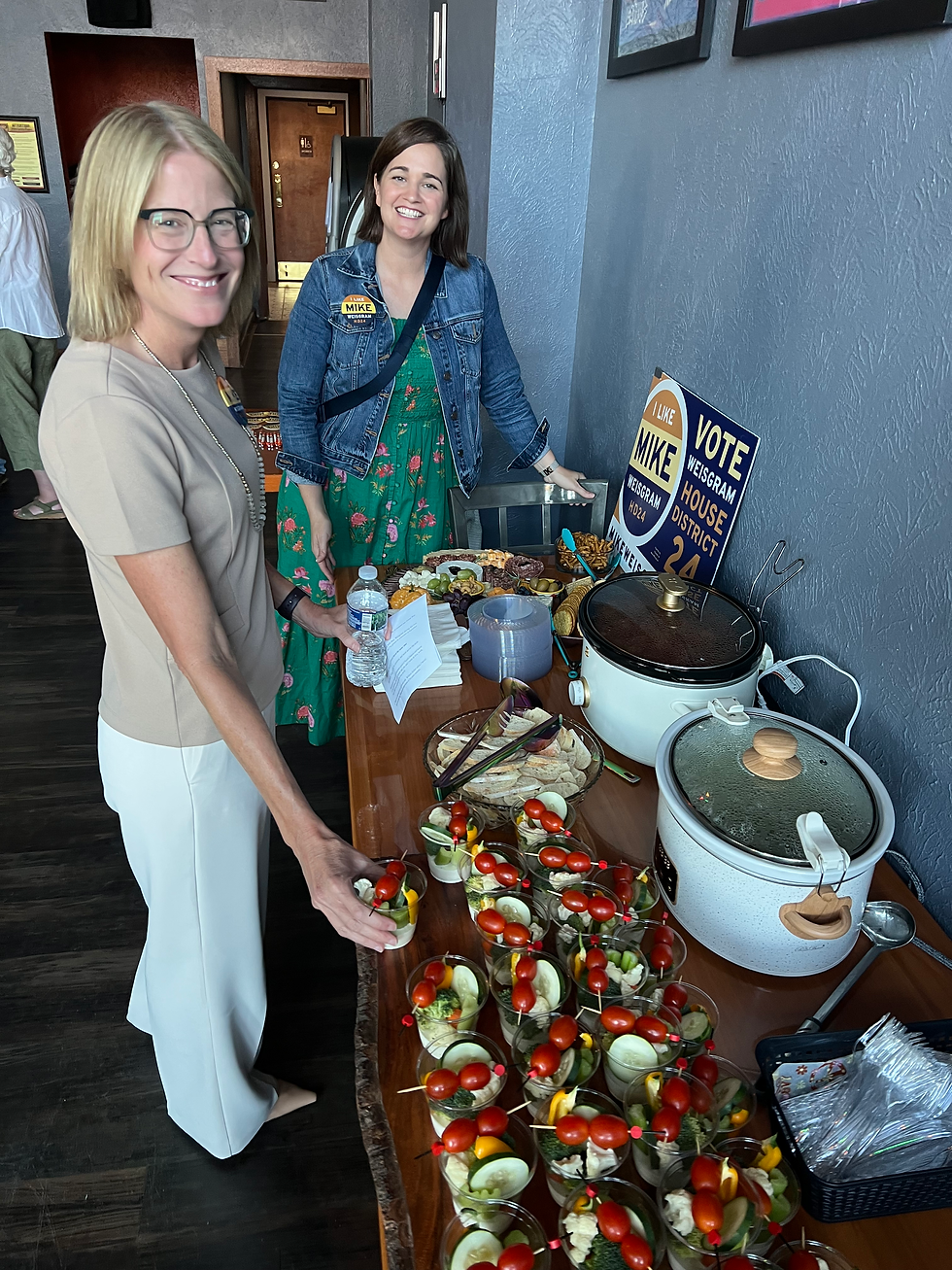Legislative Update – Week #2
- Mike Weisgram
- Jan 21, 2022
- 3 min read

In the second week of session, legislation is working its way through the committees and the House and Senate floors. It’s been a different kind of week for me as I tested positive for Covid and am attending meetings remotely. I am grateful to have the opportunity to continue to participate even if from afar and am also grateful that my symptoms are similar to other colds I have experienced in my 68 years. Hopefully I can return to my duties in-person next week as the flow, intensity, and immediacy are much more productive when all of the personalities are fully present and engaged.
I took special note of Senate Bill 80 this week, a bill that is business friendly to the emerging electric vehicle industry. The legislation allows an owner or operator of a recharging center for electric cars to resell electricity without the hindrance of being classified and regulated as an electric utility company. This sounds simple and maybe obvious to some, but it is a big win for those who anticipate the need for these stations in the future and are willing to invest in the infrastructure they demand. The bill passed and I anticipate it coming to the House Commerce Committee soon. Staying on the electric vehicle subject, House Bill 1093 asks for an increase in vehicle registration fees for electric motor vehicles. The current annual fee is $50, and this legislation increases it to $250. Many legislators are concerned that the state highway maintenance fund is not being compensated enough by electric vehicle owners as the fund is maintained by the tax on fuels needed to operate internal combustion engine vehicles. The bill will receive broad support, but any legislation with a tax increase tied to it has an unsure future. This will be an interesting bill to watch.
Finally, I attended (remotely) a Board of Regents presentation for legislators entitled the “Impact of Senate Bill 55 Task Force”. Whether you have been following it or not, through legislation passed in 2020, the Board of Regents was required to assemble a task force to study the operations and functions of the institutions of higher education under the board’s authority. The intent of the legislation was to identify efficiency opportunities for higher education, look for duplication of academic program offerings, and find ways to maximize the investment our taxpayers make in the higher education system every year. With the report now complete, the task force (made up of education leaders, business professionals, and legislators from the appropriations committee) suggested a number of cost saving measures that will yield immediate savings and could ultimately support lower tuition costs to students. The work has also found solid wins in areas such as combining certain common functions, contracts, and services within the system. Money saving is an important result of this study, but I am probably as impressed with the Workforce and Degree Gap Analysis that came from this work. The goal of the analysis is to better align academic programming with workforce/industry needs in South Dakota. Almost nothing interests or motivates me more than improving the condition of the state’s workforce… and this initiative is encouraging. There are many more recommendations the task force has documented, and you can find them at www.sdbor.edu.
Thank you for your interest and please contact me with any questions or concerns.
mw



Comments